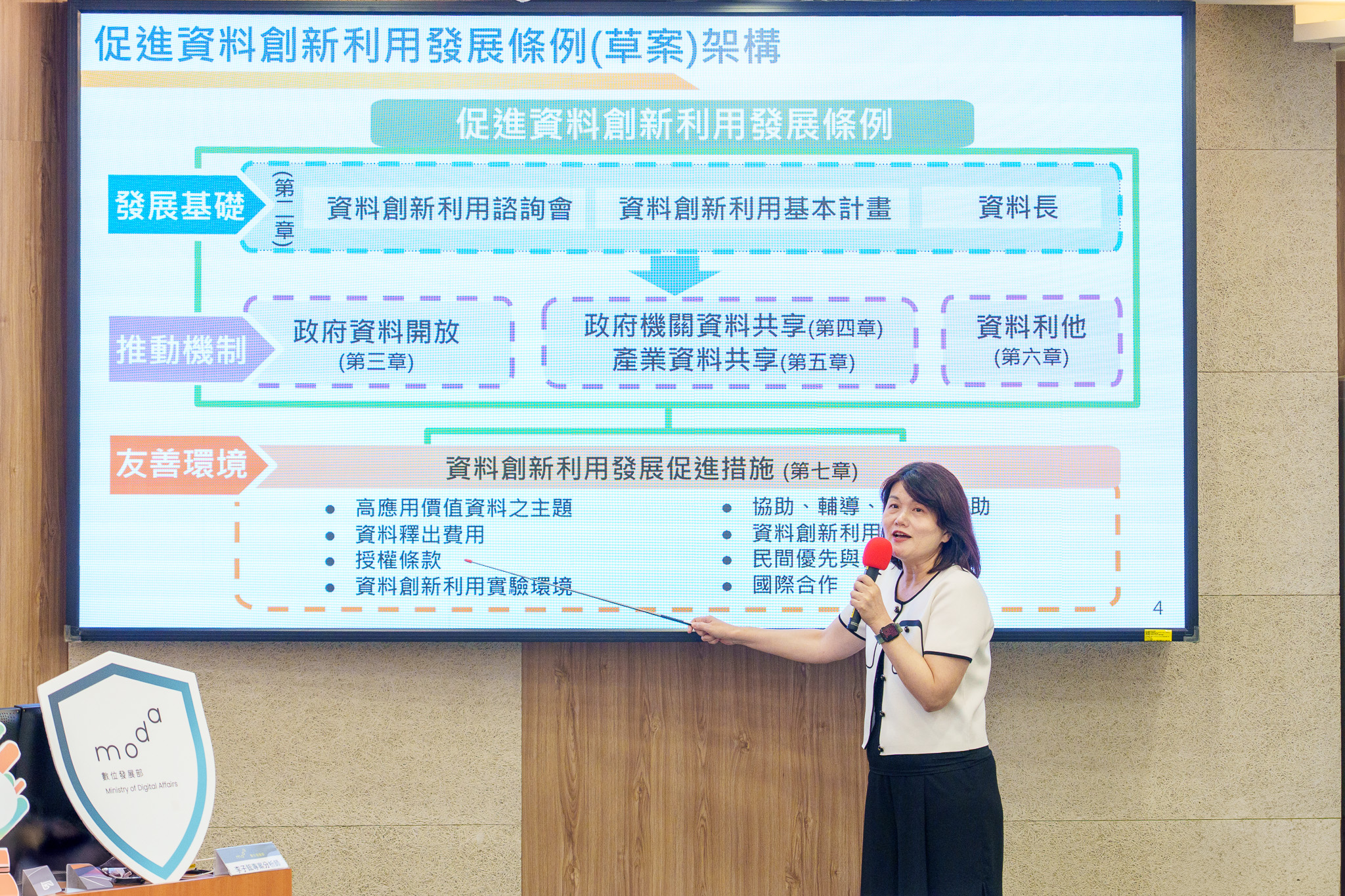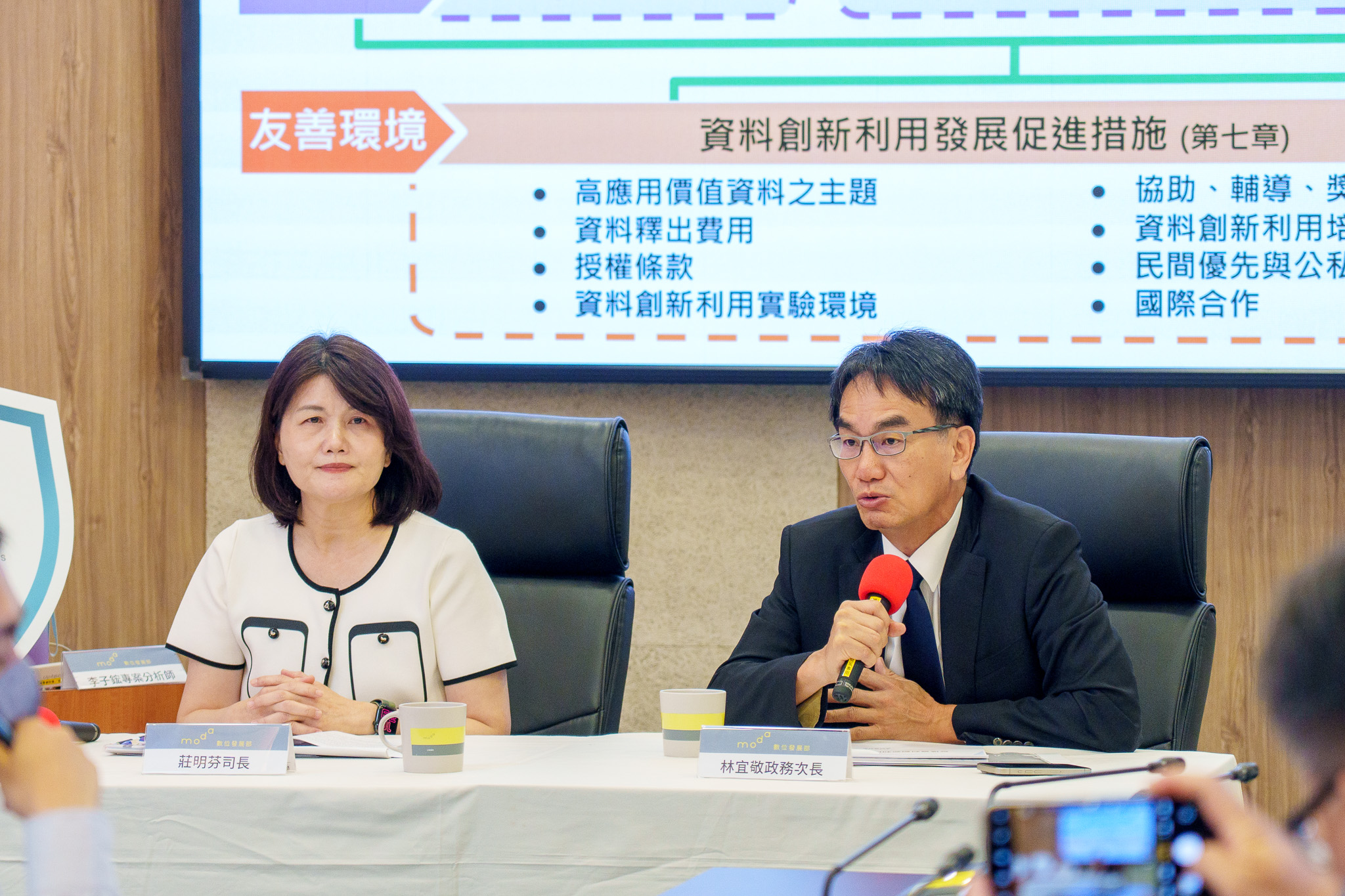Draft Act on Promoting the Development of Data Innovation and Utilization Released for Public Consultation — the Ministry of Digital Affairs Drives Data Sharing and AI Development
To keep pace with the rapid advancement of emerging technologies such as artificial intelligence (AI), and acknowledging the essential role data plays in AI training and applications, Taiwan’s Ministry of Digital Affairs (MODA) has released the draft “Act on Promoting the Development of Data Innovation and Utilization” The draft is open for public comment until August 15. MODA warmly invites feedback and suggestions from all sectors. The purpose of this draft regulation is to expand data openness and sharing, promote data reuse, and provide a legal foundation for Taiwan’s AI development.
Data is the imperative resource for AI development. Since its establishment, the Ministry has been dedicated to promoting open government data and fostering a collaborative environment that encourages innovation across multiple sectors. To strengthen the legal framework for data innovation, the Ministry consulted extensively with experts from industry, academia, research institutions, and related government agencies and drafted the “Act on Promoting the Development of Data Innovation and Utilization” which includes improving the quality of open data, enhancing data sharing across government and the private sector, and encouraging public agencies to introduce incentives that stimulate innovation in industry, as well as establishing more robust consultation mechanisms to support the use of data in innovative ways. The efforts mentioned above aim to ensure that data can flow more freely and be used effectively to drive innovation across sectors.
The Ministry emphasizes that accelerating AI development is a national priority, and that one of the key challenges is ensuring that data can be accessed and used both efficiently and securely. To address this, the draft Act stipulates that government open data should be made available under standardized license terms to facilitate the development and application of emerging technologies, such as AI. MODA also underscores that data sharing by government entities should, as a rule, follow a non-exclusive licensing approach to ensure broad access to data and further support AI development. By leading through government action, MODA hopes to strengthen the legal infrastructure and release high-quality data to boost the development of Taiwan’s sovereign AI fully.
In addition to supporting AI, the draft also aims to enhance data sharing among government agencies by promoting the establishment of a regular, secure, and institutionalized data-sharing mechanism. The draft also encourages cooperation within the private sector, aiming to ensure that data sharing is conducted in a safe, fair, and non-discriminatory manner. The Ministry believes that by improving the mechanisms for data exchange and providing positive incentives, such as subsidies, rewards, and consultations, both public services and the private sector can benefit from increased data access and collaboration.
The Ministry emphasised that the draft further proposes a clear system for advancing data policy nationwide, which includes the appointment of Chief Data Officers (CDOs) within agencies and the formation of a Data Innovation and Utilization Advisory Council under the Executive Yuan to coordinate data-related initiatives across all levels of government. Through the establishment of a national strategy and implementation plans, the Act sets out concrete goals and actionable steps to ensure the realisation of data openness, sharing, and reuse. Ultimately, it aims to build a public-private data ecosystem that drives continuous innovation.
To ensure the draft reflects societal needs and incorporates diverse perspectives, MODA sincerely welcomes feedback and suggestions from the public. The consultation period will remain open until August 15, and individuals can submit their suggestions via the Public Policy Participation Platform at https://gov.tw/dfd. All comments will be carefully reviewed and considered as part of the policy-making and legislative refinement process, to build a legal framework that reflects broad public consensus and supports long-term innovation.

